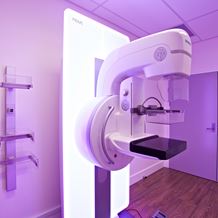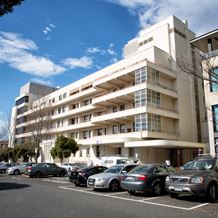How can an individual woman minimise her risk of developing breast cancer?
Unfortunately, the three major risk factors for breast cancer (gender, that is being female as opposed to male, increasing age and family history) are out of our control, however there are modifiable risk factors, such as:
Body Weight
The relationship between weight and breast cancer risk depends on whether you are pre or post-menopausal. Before menopause, women who are overweight are less likely to develop breast cancer than lean women. After menopause, breast cancer risk increases with increasing weight or body mass index (BMI). As the majority of breast cancers occur in the postmenopausal age group (76% of breast cancers are diagnosed in women fifty years and older) maintaining a healthy weight is vitally important in this age group.
Physical Activity
Active women of all ages are at reduced risk of breast cancer compared to women who do not exercise. The exact amount of physical activity needed to reduce your risk is not yet entirely clear, however, studies have shown that one and a half to four hours per week of brisk walking (or equivalent) reduces the risk of breast cancer in post-menopausal women. And the more exercise you do, the bigger the benefits in lowering your risk.

Alcohol Consumption
Drinking more than two glasses of alcohol each day is associated with an increased risk of breast cancer. This includes beer, wine and spirits. The risk increases with each additional 10g of alcohol intake per day.
Hormonal Factors
A small increase in risk exists while you are taking the oral contraceptive pill and in the ten years after stopping it. However, the underlying risk of breast cancer is low at the young ages when women typically use the pill. If you are post-menopausal, taking combined hormone replacement therapy (HRT) for five or more years is associated with an increased risk of breast cancer.
Common Misconceptions
There are a number of “myths” about the risk factors and causes of breast cancer that sound plausible but have little or no scientific theory or data to support them.
There is no body of evidence that an increased risk for breast cancer can be attributed to:
- The use of antiperspirants
- Wearing a bra
- A blow or injury to the breast
- Having silicone breast implants
How can an individual woman maximise early detection of breast cancer?
Breast awareness– awareness by a woman of the normal look and feel of her breasts. This is strongly recommended in women of ALL ages.
Mammographic Screening– the use of mammography in asymptomatic women to detect breast cancer at an early stage is recommended every two years for all women fifty and over.
Women at increased risk may be recommended an enhanced, personally tailored risk-adapted screening programme, which may on occasions include MRI scanning. There is currently interest in the potential development of personalised screening recommendations, which depend on a personal risk assessment, in which women at high risk are screened more frequently, beginning at a younger age, while women at low risk start later and are screened less frequently.
Summary
To minimise their risk of breast cancer, women should exercise regularly, maintain a healthy weight and minimise alcohol consumption.
To maximise early detection women should practice breast awareness and undergo age and risk appropriate breast screening.
Dr Jane O’Brien
Dr O’Brien is a specialist breast cancer and oncoplastic surgeon who specialises in surgery for breast cancer and prophylactic/preventive surgery for high risk individuals.




